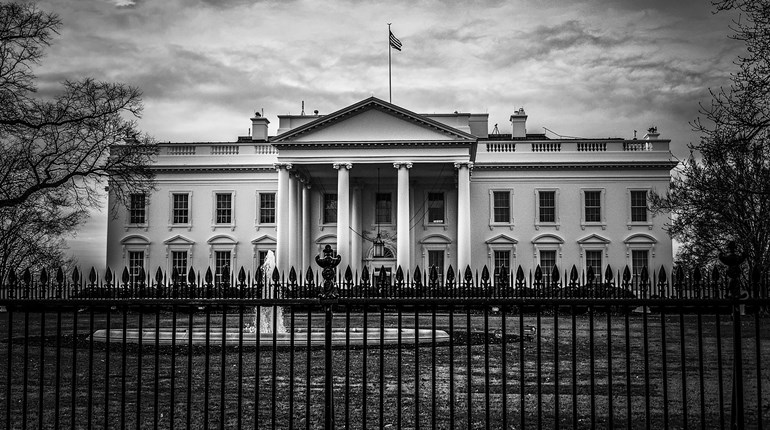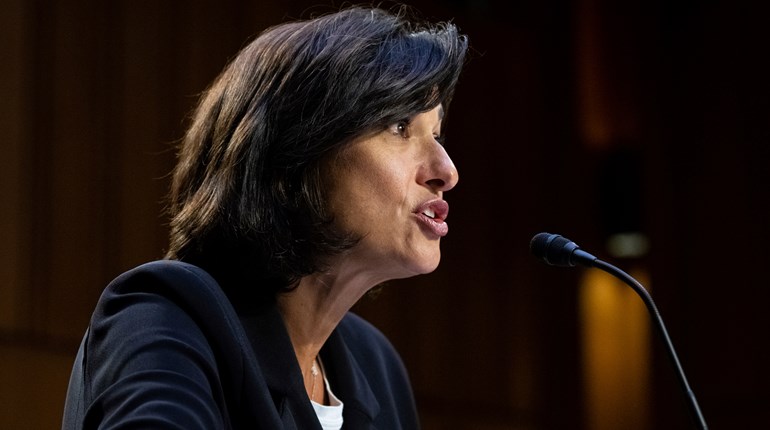
In late November, the Trump administration provided a lifeline to the gun industry with a rulemaking that would restore access to the products and services of America’s largest banks.
Modern commercial activity depends on tools like payment processing and lines of credit.
Gun-control advocates have sought to exploit this reality by depriving firearms businesses of the financial services they need to survive.
After all, without companies producing and selling firearms and ammunition, there can be no American gun owners.
The most infamous example of this tactic occurred during the Obama/Biden administration and involved the government itself.
Following the economic crisis of 2008, which resulted in taxpayer bailouts of large national banks, Congress passed the Dodd-Frank Wall Street and Consumer Protection Act of 2010 (Dodd-Frank). The act purported to improve the resiliency of the U.S. financial markets and to protect consumers from abuse.
In practice, however, the Obama/Biden administration used a supposed initiative against banking fraud to target industries that offended their sensibilities.
Dubbed Operation Choke Point (OCP), the scheme was a coordinated effort by banking regulators purportedly to spur the finance industry to more actively manage risks posed by their customers.
Revelations by watchdogs, congressional investigators, and litigation, however, demonstrated the regulators were pressuring banks to reject credit-worthy customers in legitimate industries on the basis of the regulators’ own ideological objections to them.
These included sales of firearms and ammunition, both of which were singled out on a list of “high-risk” merchants the Federal Deposit Insurance Corporation provided to banks in a 2011 guidance document.
In the circular reasoning of OCP, it wasn’t just the businesses’ legality or financial performance that created the hazard, but the “reputation risk” they supposedly posed to banks by provoking the ire of anti-gun activists.
The worst of the activism, however, was coming from the regulators themselves. They made it understood that the banks could face expensive and damaging investigations for serving disfavored clients.
Banks took heed and soon began avoiding the “high-risk” industries entirely.
Financially sound and well-performing firearm companies suddenly found themselves dropped by their banks or refused new banking services.
The Obama/Biden administration backpedaled when the scheme came to light. The 2011 guidance was retroactively modified and new guidance was issued emphasizing case-by-case risk management, rather than debanking of entire industries. The regulators denied wrongdoing, insisting the banks misunderstood their intentions.
Yet, anti-gun activists subsequently embraced OCP’s tactics, openly calling for discrimination against the firearms industry.
In 2018, for example, The New York Times published an essay that called for the finance sector to “effectively set new rules for the sales of guns in America,” arguing, “Collectively they have more leverage over the gun industry than any lawmaker.” The essay noted that various payment processors had dropped gun companies entirely and that banks could follow suit, including by dictating what and to whom firearm companies could sell.
After Democrats took over various congressional committees in the 2018 midterms, hearings were held to publicly berate and browbeat officers of large national banks, including for serving firearm-industry clients. While the Obama/Biden Administration tried to disavow OCP as a conspiracy theory, newly-emboldened Democrats were unabashedly insisting that banks had a “corporate responsibility” to curb their relationships with the gun industry.
All the while, firearm-related businesses found their options for financial services shrinking.
The Trump Justice Department officially repudiated OCP in 2017. The new rulemaking by the Office of the Comptroller of the Currency (OCC) goes even further to correct this injustice.
Based on the Dodd-Frank mandate for “fair treatment of customers,” it would require large banks to provide access to all the products they offer to every law-abiding customer who is able to satisfy predetermined “quantitative, impartial risk-based standards.” The rule would also prohibit activists and federally-chartered banks from conspiring to deprive otherwise-eligible customers of financial services for political reasons.
Under Obama/Biden, and through the subsequent efforts of anti-gun activists, the finance industry was weaponized as a tool of political oppression.
The Trump administration rulemaking, by contrast, encourages banks to promote lawful economic activity and manage financial risk, while leaving policy decisions about what sorts of businesses are permissible in the first place to the political branches and the U.S. Constitution.
This is exactly why all patriotic Americans should support it … and why you can expect the gun-control lobby and their fellow travelers in banking boardrooms to vigorously oppose it.


































